Easy Tips For Harvesting and Drying Your Own Herbs
Drying herbs is a great way to preserve them to use in your recipes into the fall and winter months. Learn the easy methods.
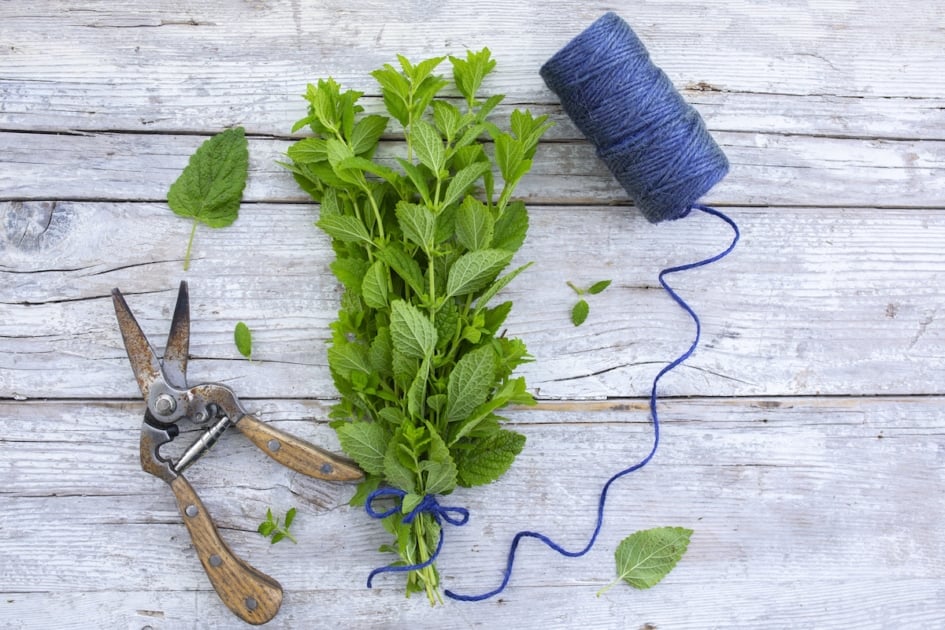
If you grow your own fresh herbs, cook with them, and have too many for your family (and neighbors), why not channel your inner herbalist and begin drying them as well? Drying herbs is a great way to preserve them to use in your recipes into the fall and winter months.
Why Not Just Buy Dried Herbs?
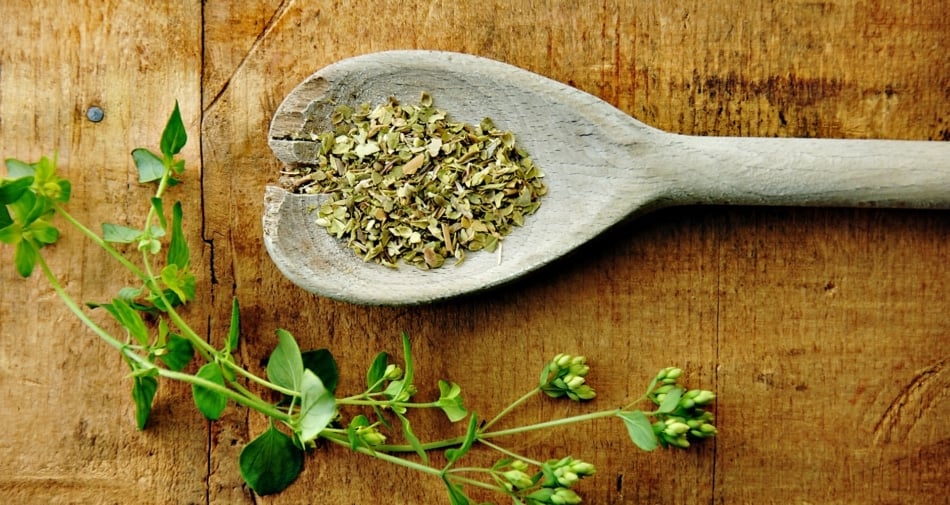
Growing and drying your own herbs is much cheaper than buying them in the store. If you grow perennial herbs, such as oregano, you will only have a one-time expense, with a fresh homegrown supply of herbs year after year.
Another problem with store-bought dried herbs compared to homemade herbs is the level of quality. Many herbs that you find in stores have been sprayed with toxic pesticides. Organic dried herbs are available, however, they are more expensive than their non-organic counterparts. The organic sections of dried herbs in many grocery stores also have less of a selection. Store-bought herbs also have been irradiated, similar to the pasteurization process done with milk. This means that they are exposed to gamma radiation in order to destroy possible microbes or pathogens, also killing a lot of the nutrient content and vitamins. Drying your own herbs is not only inexpensive, but you also preserve the quality of the herb. If you don’t have much of a green thumb, you can often find fresh organic herbs at the farmer’s market. With a little bit of work and time, you will have a good quality, organic herb, bottled and ready for year-round cooking.
How To Harvest and Dry Your Own Herbs
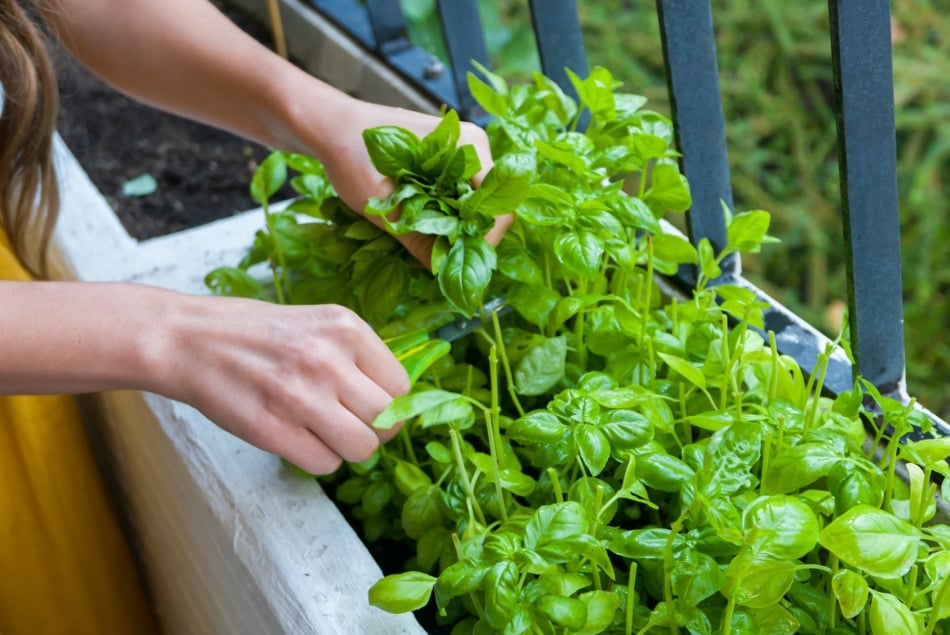
Pick them early: Pick your herbs before they get overgrown and start flowering. In order for your plant to continue growing throughout the season and prevent them from getting too leggy and overgrown, harvest and cut the plants back, leaving a few inches of stem on. It is best to harvest your herbs in the morning after the dew has evaporated, but before the afternoon Sun has drained them of color and flavor. If you aren’t planning on drying them immediately, you can store them in jars of water, just as you would fresh flowers. Do not wait to harvest your herbs too late in the growing season after the Sun has started to dry and wilt them. It is best to harvest them while they are plentiful and lush. Sage, parsley, rosemary, and thyme grow well into the fall. You can use these herbs fresh until the first frost comes before they need to be harvested and dried.
Wash them: If you grow your own herbs and they look pretty clean, you can gently shake them to remove any residual dirt or dust. If you choose to wash your herbs, carefully swish them in a bowl of cool water. Either gently pat them dry with a towel or allow them to air dry on a cooling rack. Be sure to pick off any leaves that are discolored or spotted.
Dry them: Herbs that have a lower moisture content such as thyme, rosemary, oregano, and sage can be air-dried. To air dry, divide your herbs in small batches (about 3-6 branches) and bind them together at the sturdiest bottom stems and the main stem. Twine, twist ties, or rubber bands work well for binding. If you use string, leave a good length of string at the end to use for hanging. Hang the stems upside down in a dry, dark place with some air circulation. Sunlight will reduce the color and flavor of the herb so try to keep them out of direct Sun. A well-ventilated attic or basement will work. If you do not have a place to hang them, you can also lay your herbs on a screen to dry. Periodically check your herbs for moldy leaves, or pests and remove. Air-dried herbs should be ready in a few weeks, or when they become brittle. See a note on drying, below.
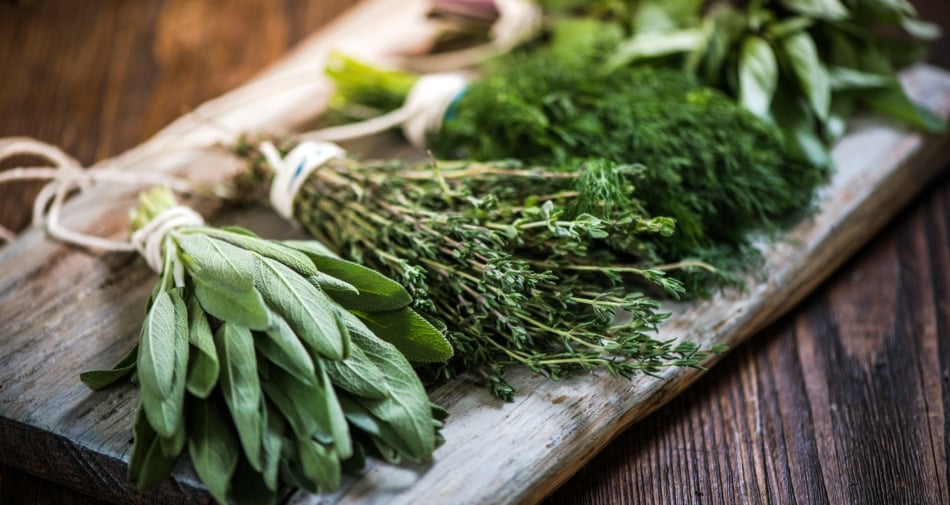
Store them: Once your herbs are dried and crisp they are ready to be stored. Simply remove the dry leaves from the stems and store them in a small airtight container. You can store whole leaves or crush them between your fingers before storing. Old spice bottles, Mason jars, or even plastic baggies work well for storage. It is a good idea to label your herbs as many look similar when they are dried. To keep your herbs fresher longer, store them in a cool, dry place away from sunlight and away from steam (like above the stove).
How Long Will Dried Herbs Last?
Your dried herbs should last for about 6 months. You can test to see if they are still potent by rubbing a small amount between your fingers and smell. If they give off a strong scent, they are still good to use. Since dry herbs are generally more potent than fresh herbs, you will need less when cooking. A general rule to keep in mind: three portions of fresh herbs equal one portion of dried herbs.
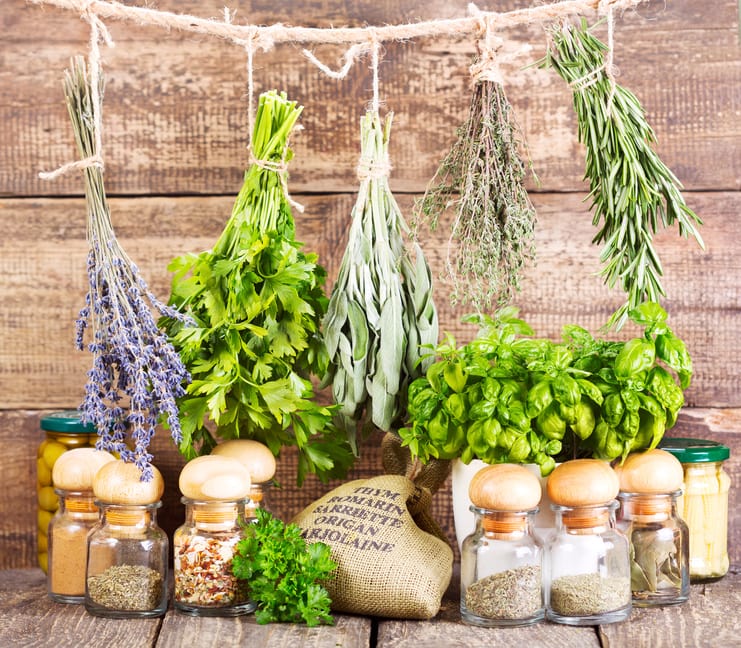
A Note On Drying
Herbs that have lower moisture content, such as basil, lemon balm, and mint, can begin to mold easily if not dried quickly enough, therefore, air drying may not be your best choice. Unless you have a dehydrator, you can use your oven to dry herbs. Preheat oven to the lowest setting it will go (usually around 170º F). It may help to place the herbs on a cooling rack on top of the pan so that they will not burn as the pan heats up. Wedge a wooden spoon in the door of your oven to keep it slightly ajar as your herbs dry. They will be done when the leaves easily crumble and the stem breaks rather than bends. They should have the crisp feel and sound of autumn leaves. This process usually takes 1-2 hours, however, you may want to set a timer to remind yourself to do periodic checks to avoid burning.
Try this basic blend for your spice rack — it’s great to use on meats and veggies.
Basic Dried Herb Blend Recipe
Basic Dried Herb Blend Recipe
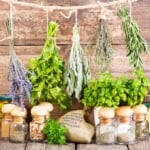
- 1 tsp black pepper
- 2 tablespoons dried oregano
- 2 tablespoons dried basil
- 2 tablespoons dried thyme
- 1 tablespoon dried rosemary
Directions:
Mix all of your ingredients together and store mixture in an airtight container. Great to season chicken, beef, or fish before grilling.

Natalie LaVolpe
Natalie LaVolpe is a freelance writer and former special education teacher. She is dedicated to healthy living through body and mind. She currently resides on Long Island, New York, with her husband, children, and dog.



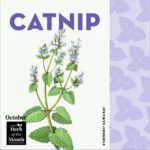


I first need to learn how to grow them!!!
Here is a great article to get you started! https://www.farmersalmanac.com/indoor-herb-gardening
My Aunt Catharine was a firm believer in not having surgery without consulting the zodiac signs. I was wondering if you could share that information. Thank you
Hi Nancy, here’s the link to the page you’re looking for: https://www.farmersalmanac.com/calendar/zodiac
We also share this information in our weekly newsletter and in daily emails, which you can sign up for on our web site. https://www.farmersalmanac.com/follow/